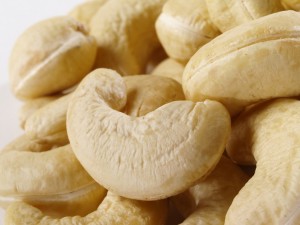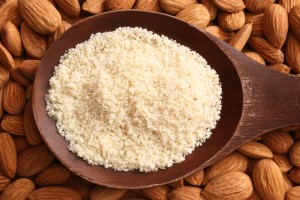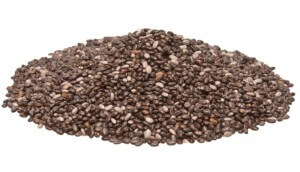Health Nut Q&A: How Much Protein Do I Need?
 Our Health Nut and Registered Dietitian, Molly Morgan, answers our customers’ most pressing health and nutrition questions!
Our Health Nut and Registered Dietitian, Molly Morgan, answers our customers’ most pressing health and nutrition questions!
If you’d like Molly to answer one of your questions in a future blog post, please email your question to health@nuts.com. If we feature your question in The Nutty Scoop, we will also send you a pound of your favorite Nuts.com product!
I would love to see more information on just how much protein I need. I eat a plant based, whole food diet. The information I see online varies so much and I am most interested in what a Registered Dietitian has to offer. Thanks so much! — Melissa
The protein found in plants, especially when consumed from a variety of sources like nuts, seeds, grains, quinoa and beans can definitely meet daily protein requirements while providing all of the essential amino acids
 required to fuel a healthy body.
required to fuel a healthy body.
On a daily basis, you need approximately 0.4 grams of protein per pound of body weight or 0.8 grams of protein per kilogram of body weight. However, there are certain factors, such as strength training, endurance exercise or illness, that can increase protein needs. For example, for endurance and strength training athletes, protein needs increase to 0.6 to 0.85 grams per kilogram of body weight. Thus, your protein needs should be considered on an individual basis.
To translate these numbers, as an example, a 140-pound person needs about 56 grams of protein per day based on 0.4 grams of protein per pound of weight. To support an endurance training program of 1.5 hours of cardiovascular and weight training five times per week or more, protein needs would increase to about 85 – 108 grams of protein per day (based on 0.6 – 0.8 grams of protein per pound).
 Another important fact to keep in mind when planning a plant based eating plan: variety is essential. This is because amino acids are the building blocks of protein and some amino acids are considered essential amino acids, meaning your body can’t make them and they must come from food.
Another important fact to keep in mind when planning a plant based eating plan: variety is essential. This is because amino acids are the building blocks of protein and some amino acids are considered essential amino acids, meaning your body can’t make them and they must come from food.
It used to be thought that vegetarians needed to combine foods that create a complete amino acid profile by, for example, combining rice and beans at a meal. Recently, however, research has proven that as long as a person consumes a variety of plant based foods over the course of a day, this practice of combining foods at any given meal is not imperative.If you are following a vegan diet, you may need more protein than referenced above because the digestibility of protein from grain sources is lower than from animal protein. This may result in a higher overall daily need depending on the types of food eaten. When following a vegan diet, it ‘s a good
 idea to check with your health care provider about monitoring your protein stores to ensure that you are taking in enough protein on a routine basis.
idea to check with your health care provider about monitoring your protein stores to ensure that you are taking in enough protein on a routine basis.
Here are a few of my favorite, plant-based protein sources:
- Quinoa or, if you’re looking for variety, TriColor Quinoa
- Organic Quinoa Puffs
- Chia Seeds
- Organic Raw Cashews
- For baking, Almond Flour (6 grams of protein per ounce), Chickpea Flour (5 grams of protein per ounce), or Chia Flour or Sorghum Flour (4 grams of protein per ounce each)
References:
Position Paper on Vegetarian Diets, Journal of the Academy of Nutrition and Dietetics, Volume 109, Issue 7, Pages 1266-1282 (July 2009).
Position Paper on Nutrition and Athletic Performance, Journal of the Academy of Nutrition and Dietetics, Volume 109, Issue 3, Pages 509-514 (March 2009).

Leave a Reply